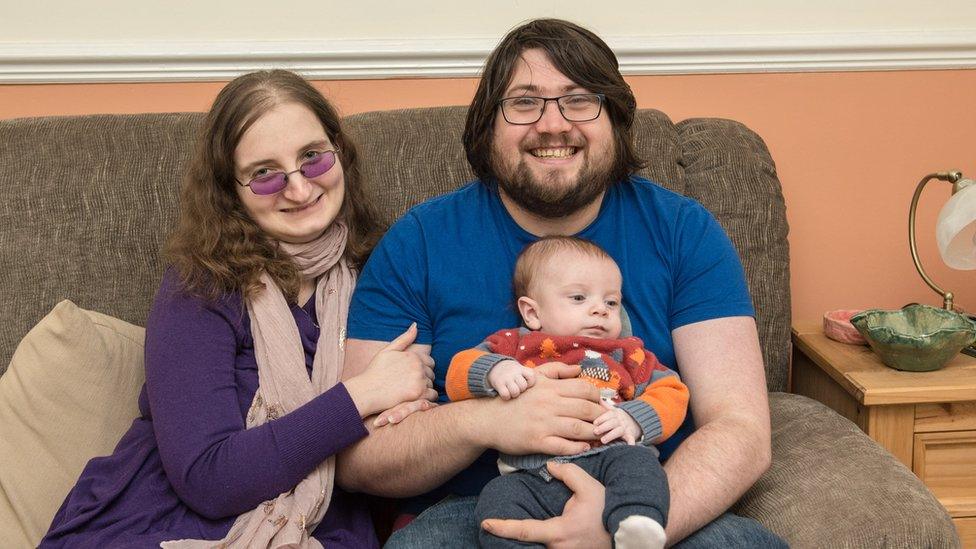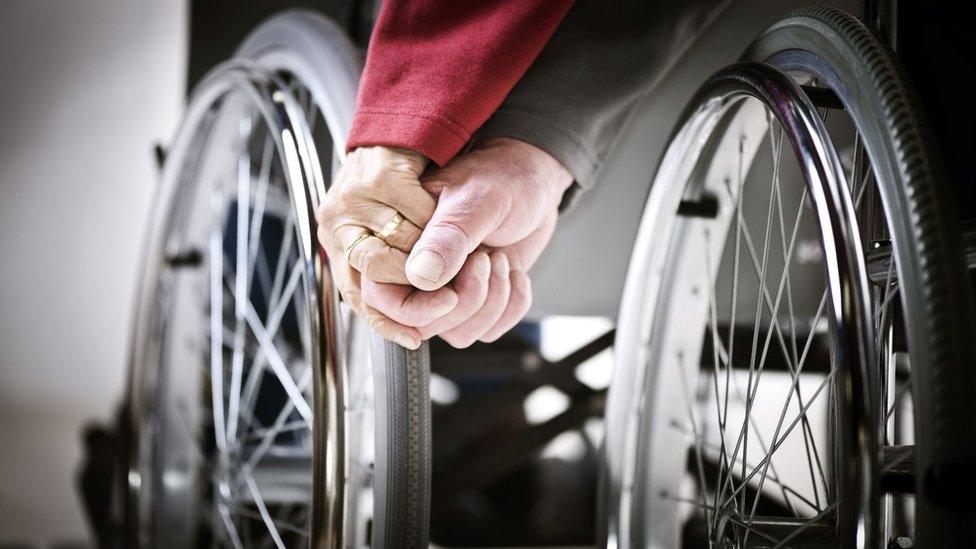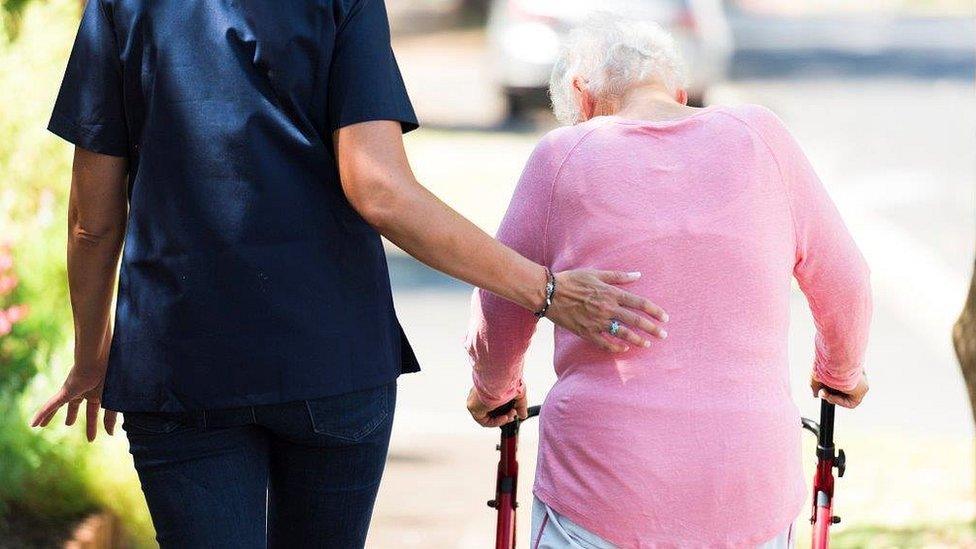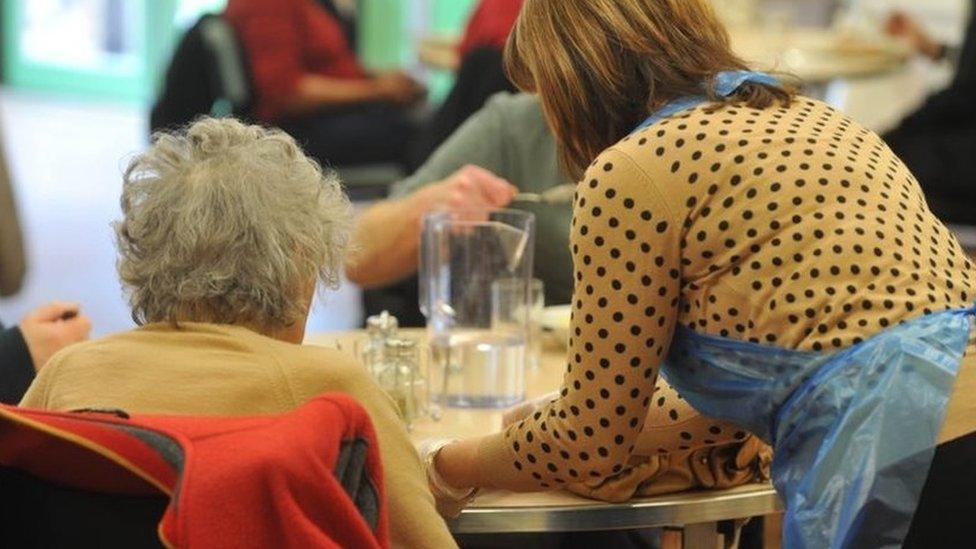No days off for 'undervalued' unpaid carers
- Published

Full-time carers like Edward Grace, whose wife has a rare health condition, struggle to get time off
A man who has been his wife's carer for 10 years has told of the struggle to get a day off.
Edward Grace from Newport looks after his wife who suffers from a condition which affects the nervous system.
He said he had to rely on family members when he needed a break because no formal support was available.
It comes as a new survey showed almost half of people providing unpaid care for relatives or friends in Wales have not had a day off in a year.
About 83% of 400 respondents said they had not had a week off for more than 12 months, the report by charity Carers Wales, external shows.
In response, the Welsh Government is making an extra £1m available to provide support.
There are estimated to be 370,000 carers in Wales.
Their role in supporting family and friends who are ill or disabled is estimated to be worth £8.1 billion a year, according to a study by the University of Sheffield and the University of Leeds.
However, almost 75% of respondents said they felt their contribution was not understood or valued by society.
The report also notes that carers are being pushed into poor health through lack of access to practical support and breaks.
Edward Grace from Newport, who has been a full-time carer for 10 years, said too little information was available.
It took a "milestone moment" for him to realise looking after his wife was affecting his future.
"Carers have to have breaks," he said, adding he could not get respite and had to rely on family members for help.
"More and more of us are stepping into caring roles, yet carers all-too-often remain hidden in plain sight at work, in friendships, and even in the families," Claire Morgan, director of Carers Wales said.
In April 2016, the Welsh Government introduced the Social Services and Well-being (Wales) Act 2014, external, intended to transform the way social services in Wales are delivered.
Carers now have clearly defined rights and there is a duty on councils to make this clear to people in a caring role.
A Welsh Government spokesman said the extra £1m will be given to local authorities to help carers have breaks.
Carers Wales called on the UK government to bring Carer's Allowance, set at £62.70 per week for 2017-2018, in line with the level of Jobseekers' Allowance so an increase of £10 per week.
It also recommended carers are enrolled in a second pension that recognises the value of unpaid work and ensures they do not suffer financial hardship in later life.
Minister for children and social care, Huw Irranca-Davies said the vision for the future was of "carer-friendly" communities.
The Department for Work and Pensions has been asked to comment.
- Published28 October 2017

- Published22 October 2017

- Published26 May 2017

- Published13 September 2016
